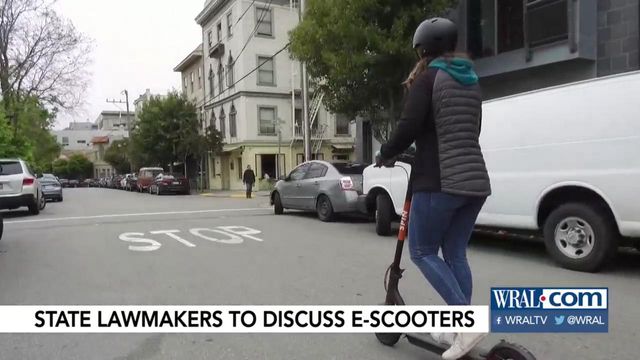State effort to regulate e-scooters advances in House
North Carolina legislators have taken a small first step toward regulating electric scooters as big cities wrestle with managing scooters and the companies that offer them to the public.
Posted — UpdatedThe House Transportation Committee voted Tuesday to define "electric standup scooters" in state law and make clear they're exempt from registration requirements for mopeds and other vehicles.
The bill's initial version contained more regulations directing how and where scooters could be ridden and parked and made clear municipal governments could prohibit use on sidewalks and license scooter companies.
But sponsor Rep. John Torbett, R-Gaston, scaled it back to just a definition under state law, which he said would block cities from banning them completely.
Torbett said the proposal wouldn't affect scooter operations in general if it becomes law. More comprehensive rules could be considered at a later date, he said, adding that he plans on filing a bill to deal with scooter user education and safety.
Asheville and Winston-Salem city councils have prohibited some scooter companies from operating.
In December, some Raleigh City Council members raised concerns about the scooters and discussed ways to regulate them.
"The problem is out of control," Councilman Dickie Thompson said at the time.
"People don't necessarily understand that a simple fall, a low-speed incident and fall to the ground on concrete or stones, can cause a very serious or life-threatening injury," said Wake EMS assistant chief Jeff Hammerstein.
Related Topics
• Credits
Copyright 2024 by WRAL.com and the Associated Press. All rights reserved. This material may not be published, broadcast, rewritten or redistributed.





